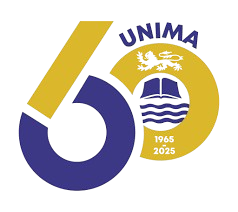CALL FOR PAPERS CELEBRATING DAVID RUBADIRI
Journal of Humanities (JH), Special Issue, June 2019
University of Malawi, Chancellor College
ISSN: 1016-0728
About the Journal
Journal of Humanities is a scholarly and peer-reviewed journal of the Faculty of Humanities at Chancellor College, University of Malawi. The journal aims to foster critical and theoretical debates in the areas of classics, fine and performing arts, communication, literature and orature, linguistics, theology and philosophy. Papers from related disciplines in the social sciences are also accepted. The journal publishes original research articles, scholarly opinions, and review articles. Priority is given to articles focusing on East, Central and Southern Africa. JH has a pluralistic and non-partisan approach.
CELEBRATING DAVID RUBADIRI: CFP
On 15 September 2018, the academic community woke up to the shocking news of the passing of Professor David Rubadiri, a day after celebrating his 61st anniversary in marriage. Prof Rubadiri was a celebrated poet, playwright, novelist, critic, diplomat and one-time Vice Chancellor of the University of Malawi. He also taught at universities of Makerere in Uganda, Nairobi in Kenya, and Botswana. His biography and work anticipate the figure and the preoccupations of a transnational and transcultural artist, and visionary leader. A special issue of the Journal of Humanities is in the offing in which we would like to honour Prof David Rubadiri. We thus invite abstract submissions of not more than 300 words examining original approaches to Rubadiri’s life, work and times. We are particularly looking for ideas that focus on but not limited to the following:
-
Nationalism
-
Exile
-
Afropolitanism
-
The environment
-
Home and belonging
-
Inclusion and exclusion
-
Neo-colonialism in Africa
-
Dictatorships/neopatrimonialism
-
Democracy
-
Gender and cultural practices
-
Frames of reference: why think Rubadiri with the East African literary scene?
-
Teaching Rubadiri
Please submit for consideration an abstract to the editor at editor.jh@cc.ac.mw not later than 31 December 2018. Your abstract should be accompanied by a cover letter or email indicating your name, institutional affiliation, full contact details, and a brief biography. Communication on accepted abstracts will be done by 15 January 2019.
Thereafter, research essays of not more than 8000 words, including footnotes (which must be used to the barest minimum) and references, or creative engagements with Rubadiri’s poetry in the form of an essay of not more than 3000 words must be submitted by 30 April 2019. All submissions should be in English. Authors must also ensure that their manuscripts adhere to all the requirements listed in the author guidelines of Journal of Humanities.
© Faculty of Humanities, University of Malawi, ISSN: 1016-0728
Notes for contributors
Articles submitted to the journal must be original contributions and not under consideration for any other publication at the same time. All contributors must conform to the style and reference technique of JH. Submissions are evaluated by at least two members of the editorial board or the board of consulting editors. We will inform the author(s) of the decision as soon as possible.
Contributors are entitled to one copy of the issue in which their article appears.
Technical presentation of manuscripts
1. Submit the manuscript in Microsoft Word.
2. Use Times New Roman (12 pt) and 1.5 line spacing.
3. Indicate paragraph breaks by leaving a line open. Manuscripts should be reasonably divided into sections and, if necessary, sub-sections. Clearly indicate the hierarchy of subheadings.
4. Cited forms should be marked by quotation marks and emphasised expressions should be marked in italics.
5. A structured abstract of 300 words in length, covering the main factual points and a statement of objective or problem, theoretical strategy(ies), findings and/ or conclusion should accompany the article, plus a list of at least five focused key words.
6. The author’s institutional affiliation and contact details, that is, name, address, telephone number(s), and e-mail address(es) should be submitted on a separate sheet.
7. Where images and tables are used, they must be professionally produced and ready for reproduction. Do not embed images in the text. Tables should be numbered consecutively and titled, and must be referred to in the text.
8. Check that all references cited in the text are included in, and correspond with, those in the references section. Provide proof that permissions have been obtained for reproducing illustrations and copyright material quoted in the text, with appropriate acknowledgements (and/or credits in captions) included, and any reproduction fees paid.
Quotations
Short quotations should be indicated by double inverted commas, with single inverted commas for quotations within the main quote. Quotations of more than 60 words should be indented and blocked.
References
Avoid footnotes. When referring to published material, please use the 6th Edition of the American Psychological Association (APA) Style Manual. References are cited in the text by giving the name of the author(s), the year of publication (in parenthesis), and the page number(s), e.g.:
1. According to Sango (2013), teaching art in a poor country is a challenging task because of lack of materials.
2. Teaching art in a poor country is a challenging task because of lack of materials (Sango, 2013, p. 199).
All citations must be fully listed in the references section at the end of the article or review in alphabetical order by author, with complete bibliographic details. For example:
McKenzie, J. C. (2013). Art teaching for primary schools in Africa. London:
Macmillan.
Peace, A. Loving leviathan: The discourse of whale-watching in Australian ecotourism. In J. Knight (Ed.), Animals in person: Cultural perspectives on human-animal intimacy. New York, NY: Berg, 191-210.
Phiri, K. (2000). A case of revolutionary change in contemporary Malawi: TheMalawi Army and the disarming of the Malawi Young Pioneers. Journal of Peace, Conflict and Military Studies, 1 (1), 5-13.
Smyth, A. M., Parker, A. L., & Pease, D. L. (2002). A study of traditional music.
Journal of Music and Culture, 8 (3), 120-125. Retrieved from http://
www.articlehomepage.com/full/url/
Brownlie, D. (2007). Toward effective poster presentations: An annotated
bibliography. European Journal of Communication, 41, 1245-1283.
doi:10.1108/03090560710821161





